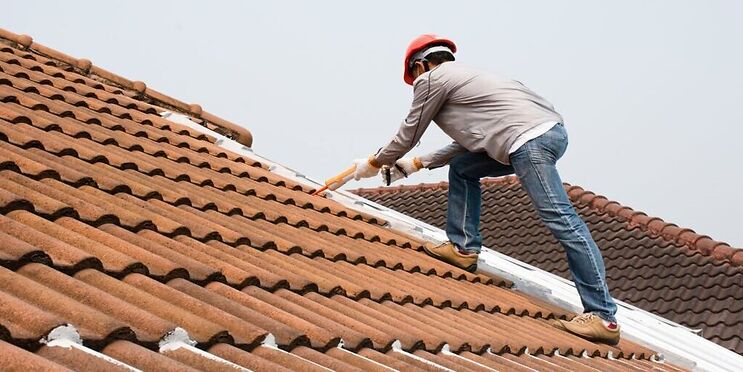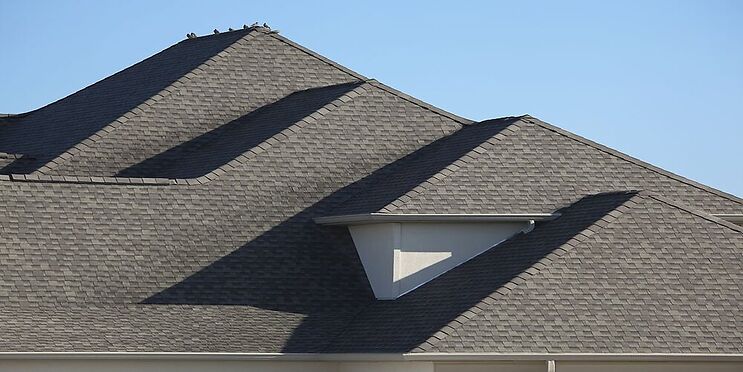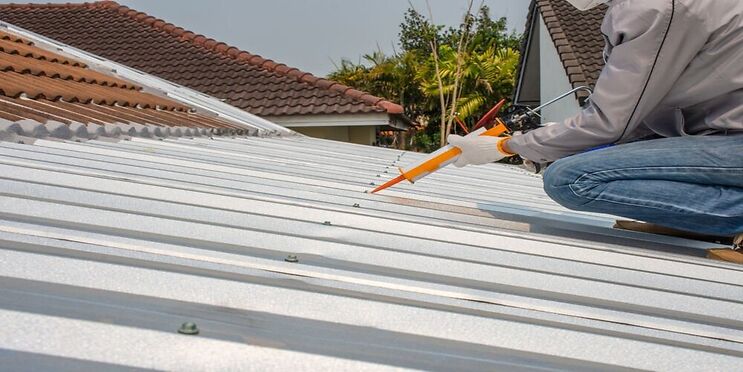What is Roof Sealing?
What is Roof Sealing?
Roof sealing defined

Roof sealing is a roof repair technique that involves applying a sealant to the roof’s surface. The purpose of roof sealing is to prevent water from penetrating the building through cracks or holes in the roof regardless of which type of roof you have, such as a flat roof, metal roof, or concrete roof tiles.
Roof sealing is a common practice in commercial buildings. In addition to preventing leaks, roof sealing protects against damage caused by extreme weather conditions such as hail storms.
Roof Sealing process
The roof sealing process is an integral part of any building project. It ensures that rainwater does not leak into the structure of the building. Water leaking inside buildings causes damage to walls, ceilings, floors, and other parts of the building. This could lead to mould growth which may cause health problems for occupants.
Pressure cleaning roof tiles
Roof tile pressure washing should always be done before roof sealing, as it allows for better penetration of the sealant into the cracks and crevices on the roof. It also ensures that the sealant gets fully applied to all roof areas. By doing the cleaning step, you will also be able to do a roof inspection so you can proceed to the next step, which is the repairs, such as roof leaks, sagging, and many more. Therefore, cleaning is an essential part of the roof restoration process.
Roof Repairs
A roof repair job should always precede any roofing sealant application. This allows you to check leaks and other problems before applying the sealant. It also allows you to make sure the area is clean and dry. If there are any issues with the roof, they may need to be repaired first.
Roof Pointing
The roof pointing was done before the roof sealing. This is because we wanted to ensure that all the water would drain away from the building, especially if your roof has ridge caps. Also, we had to ensure that there were no leaks.
We also needed to seal the roof properly after pointing, as this would help prevent any further leakage.
Roof Priming
It is crucial to prime the roof before applying the sealer. This helps ensure that all areas are sealed evenly and thoroughly. The primer also prevents any potential issues from occurring during application.
This is especially true for roofs that have been previously painted. Any paint left on the surface could cause problems when applied over the top. As well as this, if there is dirt or debris present on the surface, it may prevent the product from adhering correctly.
Colour Coating
The colour coating should be applied on all surfaces before applying the roof sealant. This will ensure that no air bubbles are trapped under the sealant, which could lead to premature failure. You can also add an extra layer if needed.
The best way to apply this would be to use an applicator brush with a fine tip. It is essential to coat the entire surface evenly, as any areas left untreated may cause problems later on when the roofing material is installed.
Types of Sealers and Sealants

Acrylic Coatings
The acrylic coatings are roof seal that is an ideal solution for waterproofing roofs because they provide excellent protection against water penetration. They also offer a long-lasting finish, making them suitable for all building materials, including concrete, brick, slate, tile, and asphalt.
The product is available in two different forms – liquid and powder. Both are easy to apply and cure quickly. The liquid form dries within minutes and provides a smooth surface, while the powder form cures much faster and offers greater flexibility.
Silicone Coatings
Silicone coatings are used for sealing roofs from rainwater leakage. They are highly effective at preventing leaks. In addition, they are straightforward to apply and remove once cured. They also provide an excellent finish, making them ideal for use on flat surfaces such as tiled roofs.
Silicone coatings are available in liquid and paste form and come in a wide range of colours, including white, black, grey, silver, gold, and blue.
Polyurethane Coatings
Polyurethane coatings are used as roof sealants for roofs made from wood, concrete, asphalt, slate, tile, etc. It protects against water penetration and other environmental factors by creating a waterproof barrier between the building structure and the environment.
The product also offers excellent adhesion properties, which makes it ideal for use on flat surfaces such as decks, patios, driveways, walkways, etc.
Asphalt Coatings
The asphalt coatings are used for sealing roofs from water damage and other environmental factors. They also help protect the roof’s integrity by preventing moisture penetration into the roofing system.
The asphalt coating is applied over the existing roof surface using various methods such as spraying, brushing, rolling, troweling, and puddling. It is then cured at temperatures ranging between 100°F to 200°F.
FAQs

What are the benefits of roof sealing?
Roof sealing is an effective way to protect your home from water damage. It also helps prevent mold growth on the surface of your roof. This prevents rot and decay, which could cause serious structural problems for your home.
Roof sealing is a simple process that involves applying a sealant to the exterior of your roof. The sealant acts as a barrier between the elements and your house. It protects against moisture penetration and keeps rainwater away from your home.
Sealing your roof can help you save money by reducing the time and energy required to repair leaks and keep your home dry. It can also reduce the risk of fire spreading throughout your home.
How do I choose the best roof sealing, contractor?
Roofing contractors are not all created equal. They don’t have the same experience and expertise. So how do you know which ones are worth hiring? Here are three steps to help you find the right roofer for your home.
1) Ask friends and family who they use when they need a roof repair.
2) Look at reviews on sites such as Yelp, Angie’s List, Home Advisor, etc.
3) Check with your local Better Business Bureau.
Do I need to secure council approval for roof sealing?
Roof sealing requires council approval. It may also require an environmental impact assessment (EIA) if there are any potential adverse effects on the environment. Roofing companies are well aware of all the requirements.
Conclusion
Roof sealing is an essential service for homeowners. It protects roofs against water damage and leaks caused by heavy rainfall. This is why roofing contractors recommend regular maintenance to keep roofs safe and dry. Hope the information we have shared helps you to start your next roofing project.

